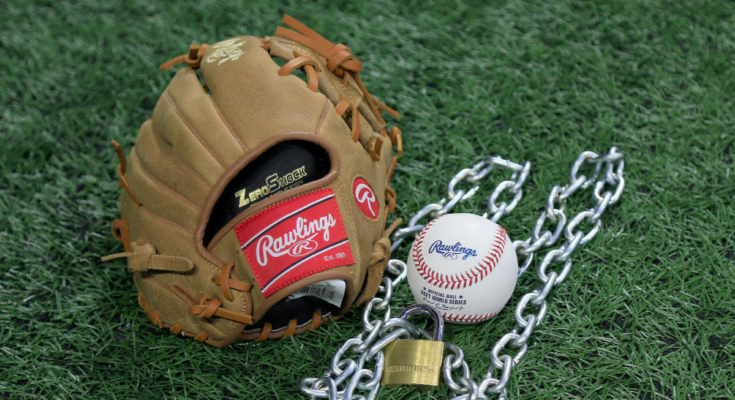Friday marked the fifth consecutive day of bargaining between Major League Baseball and the MLB Players’ Association. The two sides are meeting every day this week in Jupiter, Florida, in an effort to reach an agreement that will end the owner-initiated lockout. MLB says Opening Day will be delayed and regular season games will be canceled if there’s no deal by Monday, Feb. 28.
The league reiterated the stance Thursday night while also saying that if this deadline isn’t met, regular season games will be cancelled, will not made up and the players won’t be paid for the missed games.
As for spring training, the league previously announced roughly a week of cancellations. Spring exhibition games were initially slated to start on Feb. 26. They were then postponed until March 5, at the earliest. Friday, the league announced three more days of cancellations, meaning the earliest spring training play can begin is March 8.
Friday, for the first time, MLB commissioner Rob Manfred showed up for a portion of the discussions. Per every reporter on site, however, Manfred didn’t take part in negotiations. Instead, he met one-on-one with MLBPA executive director Tony Clark for the first time in years.
The meetings between the two groups (MLB and MLBPA) Friday went longer into the evening than any other day to this point, with multiple breaks where the two sides separated to discuss matters amongst themselves before reconvening with the other side again.
There was significant progress on one item and that’s draft order. MLB and MLBPA are close enough on the matter that they are ready to “close it out,” per Chelsea Janes of the Washington Post.
Here’s a rundown of what is currently on the table:
- The MLBPA wants to add $10,000 to their previous minimum salary proposal. MLB is now offering $640,000 in 2022 with $10,000 raises each year. The MLBPA is seeking $775,000 in 2022 with $30,000 raises each year. The minimum salary was $570,500 in 2021.
- MLBPA would like to raise the proposed bonus pool for pre-arbitration players (a new concept) to $20 million. MLB previously offered $15 million for the top 30 players. The MLBPA is now seeking a $115 million bonus pool to split among the top 150 players.
- MLBPA wants a draft lottery for the top seven picks. MLB previously offered a lottery for the top three picks only. The union previously wanted the top eight picks to be decided by a lottery, then reduced it to the top seven picks. Thursday, reports indicated there might be some mechanism in place to punish larger-market teams finishing well below .500 for consecutive seasons. We aren’t yet sure of the specific details, but, as mentioned above, this issue seems to be pretty well decided.
Neither side has made a new competitive balance tax (i.e. luxury tax) proposal this week. MLB is offering only a $2 million raise to the threshold with more punitive penalties (higher tax rate and more draft pick penalties). The MLBPA is seeking to raise the threshold to $245 million in 2022. The luxury tax threshold was $210 million in 2022. More on that here.
The union has indicated they will not agree to an expanded postseason format for 2022 if they do not play a 162-game season. The expanded postseason is said to be worth $100 million or so in additional revenue to MLB. The MLBPA proposed a 12-team postseason earlier this offseason. MLB is seeking a 14-team format.
As noted, the MLB side says we’re very close to cancelling games and not rescheduling them, which would seemingly take the 14-team playoffs off the table.
Remember, MLB can lift the lockout at any time, allowing baseball to return and the season to be played. The National Labor Relations Act would require the two sides to operate under the terms of the previous collective bargaining agreement while continuing good faith negotiations. MLB have given no indication they are willing to lift the lockout under those terms.
At 86 days and counting, this is the second longest work stoppage in baseball history, behind only the 1994-95 players’ strike (232 days). Spring training was reduced to roughly three weeks and Opening Day was pushed back one week following the strike.


